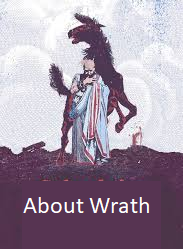
About Wrath and Hope
The ancient Roman philosopher Seneca  (4 BC – 65 AD) wrote a beautiful essay On Wrath which, although it is in three books, can be divided into two parts, it is addressed to his older brother Gallio, the first part deals with a theoretical issue ( I-II.17) and talks about the horrors of Wrath and its definitions, the second part gives tips on how to calm people, both children and adults, using real cases as examples.
(4 BC – 65 AD) wrote a beautiful essay On Wrath which, although it is in three books, can be divided into two parts, it is addressed to his older brother Gallio, the first part deals with a theoretical issue ( I-II.17) and talks about the horrors of Wrath and its definitions, the second part gives tips on how to calm people, both children and adults, using real cases as examples.
Although the texts are very interesting and intelligent, there is an essential gap that cannot be achieved through spiritual asceticism, the hope that the context will be changed by actions that go beyond the personal, social or group level, raising the level of spiritual health of a person. group.
According to the philosopher, a great man should never become angry and, when it is not possible to avoid anger, he should try to calm down as soon as possible, his famous phrase is:
“No man becomes more courageous through anger, except one who, without anger, would not have been courageous: anger, therefore, does not come to help courage, but to take its place” (I.13).
However, in social life there are situations in which good and fair men are subject to the power of authoritarian, presumptuous and arrogant men who humiliate, exploit and mistreat humble people.
To this the Stoic responds with another sentence; “Let nothing be allowed to you while you are angry. For what reason? Because he will want everything to be allowed.” (III.12), said in a modern way, if we lose our calm when pointing out a mistake, we can lose our reason in reacting to the error.
Hope is fundamental when an entire social, political or even religious situation becomes difficult and points to a path that seems to be without that of destruction, error and fear, it is not about being in conformity, we wrote in the previous post about the disposition which precedes the intention, but the intention to calm propagate peace and avoid anger becomes both hope and the possibility of viable course correction, anger does not, initiates or expands the confrontation.
It is necessary to believe that the union of forces that desire positive change has a light that is superior to the set of human forces, because they can improve the “disposition”, the climate in favor of sensible and constructive attitudes and raise the moral standard in a virtuous circle .









